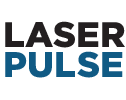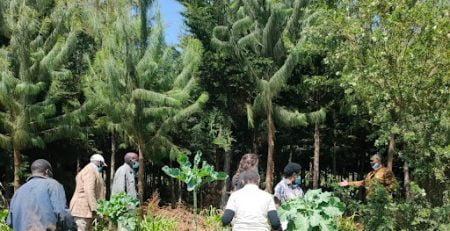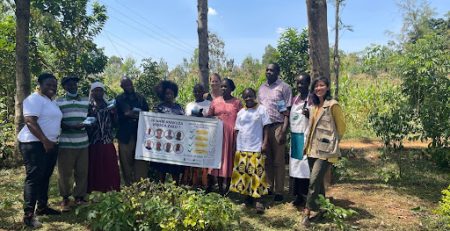Efforts to Improve Tanzania’s Education Sector: Engagement with the University of Dodoma, Tanzania May 15-16, 2023
Dissemination of Research Findings
Multidisciplinary stakeholders convened in Morogoro, Tanzania over a period of two-day Monday May 15th through Tuesday May 16th, 2023 for an engagement during which results from a project funded by USAID through LASER PULSEwere disseminated. This project, running from April 2021-July 2023, is titled Tanzania Early Grade Social and Emotional Skills and Phonics-Based Literacy Learning Agenda. It is being implemented in 50 primary schools across both Tanzania mainland and Zanzibar communities by faculty from University of Dodoma in Tanzania under the leadership of Dr. Pambas Tandika, the Principal Investigator.
Quick touch base: Dr. Pambas Tandika, Project Principal Investigator (in an African shirt), Harriet Adong, Director Communications and Knowledge Management at Makerere University – ResilientAfrica Network (RAN) and Mr. Abbas Nsanzugwanko, USAID Tanzania Project Manager before the onset of the workshop.
The project aimed at addressing five main co-created learning topics in social and emotional skills; and three in the phonics-based literacy instruction. On the social and emotional skills, topics were; school safety, instructional approaches, community strategies, teacher education, and Social and Emotional Learning (SEL) assessment. On the phonics-based literacy instruction agendas, the topics were curriculum and teaching; teacher quality; and contextual issues. This research project team collected evidence about the integration of social and emotional learning skills into school learning and community life. Researchers also gained insights into how teachers use phonics-based literacy instruction to promote children’s reading.
At the start of the dissemination session, Dr. Pambas Tandika, the Principal Investigator shared a high-level summary of the key research findings, including;
For SEL:
- The fact that SEL is not commonly understood in the Tanzanian context, both in schools and the communities. The limited understanding of SEL compromises the educational stakeholders’ ability to grow pupils’ Social and Emotional Learning Competencies (SELCs).
- Early-grade teachers have limited opportunities for in-service training programs that would empower them in school safety and SELCs development.
- A current lack of specific tools for SEL measurement and assessment results in teachers struggling with or even being inconsistent in tracking pupils’ SELCs progress.
- Many girls and boys believed that their colleagues engage in aggressive behaviors because they are just like that, have bad friends or come from violent backgrounds.
- Parents and teachers rarely cooperate on the use of education media and technology for children’s SELCs development.
- Teachers had limited understanding of the contribution of learning resources to the development of pupils’ SELCs.
- It was difficult for the teachers to articulate how to improve school safety for children with disabilities.
For Phonics-based literacy learning:
- Teachers and Quality Assurers had limited knowledge about the indicators for monitoring and measuring phonics-based literacy instruction.
- Many teachers had limited understanding of the opportunities available to them to improve their phonics-based literacy instruction.
- Teachers and parents had low awareness on how to blend or enhance the existing approaches in educational policy and national curriculum to improve reading outcomes.
- Teachers need better support from coaches, mentors, and the Community of Learning to assess pupils’ literacy progress.
- The language barrier for minority-language pupils made teaching Kiswahili literacy challenging.
- There is a lack of consensus on how language instruction could best support early-grade children who were emerging bilinguals and were not very fluent in spoken Kiswahili.
- Technology was rarely viewed by teachers and parents as a useful tool for enhancing children’s literacy skills.
- The principles of inclusion that play an important role in enhancing literacy development were overlooked by early grade teachers.
- Overcrowding and short teaching time made teachers pay less attention to individualized reading instruction for emergent bilingual children in particular.
Among the several challenges identified during this study engagements were:
- Lack of enough teachers in pre-primary.
- Inadequate infrastructure.
- Inadequate materials.
- Weak parents and teachers’ partnership in growing both SELCs and reading skills.
- A proposal to add new languages into the curriculum e.g., Arabic, French etc.
- The forum for Early Childhood learning and pre-primary is already in place and being implemented.
Dr. Pambas Tandika, Project Principal Investigator
Some questions were posed including;
- How can parents support early grade pupils’ schooling for the better? The response to this question cited a project in Kyambogo University, Kampala Uganda which was designed to stimulate early childhood learning emphasizing the need for both parents and teachers to play with the children among others. Participants also noted that the United Republic of Tanzania needs to take lead in matters concerning the Education Ecosystem.
- What next after the project ends?
- The project team has developed a Policy Brief and this is awaiting wide re-sharing.
- Continued documentation and dissemination for stakeholder engagement.
- Resharing project outputs at different forums.
A cross section of workshop participants
Representing the LASER PULSE Consortium, Harriet Adong, Director Communications and Knowledge Management at Makerere University’s ResilientAfrica Network (RAN) welcomed all participants to the dissemination session. She recognized and thanked USAID for funding research in Higher Institutions of Learning and translating research findings to improve the status quo in the communities. “Thank you, the University of Dodoma management, for creating an enabling environment for the faculty and students to engage in development research,” Adong said. She later called upon all participants to applaud Dr. Pambas Tandika and his research team for carrying out research in Social and Emotional Learning (SEL) and Phonics-Based Literacy Learning in Tanzania noting that the project findings could later be contextualized to benefit other countries/communities. “It is important that teachers and parents work together to integrate SEL and Phonics-Based Literacy Learning approaches into early grade learning,” she added. She wished all participants fruitful deliberations as she requested them to actively participate in the discussions so that we can all contribute to the subject of discussion.
Harriet Adong, RAN Director Communications and Knowledge Management, addressing workshop participants
Mr. Abbas Nsanzugwanko, USAID Tanzania Project Manager in his remarks noted that results from this project should inform the Jifunze Uelewe project implemented by USAID. “USAID is research focused so that community interventions are informed,” Mr. Nsanzugwanko said. He added that the research project findings should inform the work by the Ministry of Education, Science and Technology. He applauded the research project team for working to push relevant research findings towards improvement of the education sector in Tanzania and beyond. With SEL, the role of autonomous learners is being pushed. Autonomous learners plan, put into action and also join in evaluating the research processes as stakeholders. He also shared that USAID is excited to witness the dissemination of this project’s research findings and they remain committed to supporting research efforts.
Mr. Abbas Nsanzugwanko, USAID Tanzania Project Activity Manager
Prof. Wineaster Anderson, the Deputy Vice-Chancellor in Charge of Planning, Finance and Administration in the University of Dodoma graced the engagement and, in her remarks, thanked USAID for funding research among others. “Let us push for more collaboration and cooperation between the University of Dodoma, other institutions/organizations and USAID to push forth multidisciplinary research to promote sustainable development in Tanzania,” she said. She congratulated the research team noting that they had done the work professionally. Prof. Anderson urged the research team and all participants to always aim at enhancing their work leading to bigger research, attract more funding and positively impact the people of Tanzania and beyond. She thanked all participants for allotting time to participate in the engagement.
Prof. Wineaster Anderson Deputy Vice Chancellor in Charge of Planning, Finance and Administration in the University of Dodoma
Representing the Permanent Secretary Tanzania’s Ministry of Education, Science and Technology; Mr. Venance Manori, a Director for Basic Education in the Ministry of Education, Science and Technology thanked the Ministry for the ongoing collaboration to improve early learning outcomes in the country. He also applauded all participants for joining in the engagement. “Research findings need to feed into policy given that education is the backbone to societal development,” Mr. Manori said. He also re-echoed the Ministry’s commitment to create a better learning environment for the pupils especially at the early grade learning grade. “Let us keep working together so that we can translate all research findings into solutions to benefit our children and the nation at large,” he added. He later launched the project report.
Unveiling the project report
Launch of the project report
During the workshop, participants engaged in group discussions also generating key take-away messages from the engagements. These takeaways messages included but were not limited to the following;
- There is a need to integrate SEL and Phonics-based literacy learning to the country’s education curriculum. A Key Question was: “How might we formalize SEL in education? Is there a need to revise and ensure funding allocation to SEL related activities?”
- We all need to embrace sensitization about SEL to implementers and non-implementers. It was also noted that it is the responsibility of both parents and teachers to disseminate or advocate for SEL. Workshop participants also advocated for the need to further encourage and interest parents to closely work with the teachers for the good of SEL.
- It is also important that the research project team strategically engages with key stakeholders for the uptake of SEL. These stakeholders include; the Policy Makers and Implementers among others.
- Participants agreed to leverage social gatherings, ceremonies and meetings to sensitize the public about SEL.
- It was also noted that the Media (including print media, broadcast media and social media) plays a big role in community sensitization and thus we need to leverage use of the media overall to publicize SEL.
- Where necessary and applicable, participants proposed the use of learner by laws to advocate for SEL.
- In addition, there is a need to establish professional development programs about SEL.
- Develop, test and iterate before rolling it out a SEL awareness tool especially after establishing SEL indicators.
- The need for strengthening teacher-parents partnership in supporting early grade children develop SELCs in and outside the school.
- The workshop Participants also delved into understanding a safe school for SEL and Phonics based literacy learning to thrive. Key factors discussed for safety at school included;
- Culture of low aggression (verbal and physical).
- Safe commute for all.
- Inclusivity for those with disabilities in addition to age appropriation.
- Importance of Teachers-Parents collaboration. We need to innovate around strengthening and where it is lacking, build parents – teachers’ partnership/collaboration.
- Need to fight off master bullies who tend to negatively impact school safety.
- Need to promote gender awareness and inclusivity.
- Mindset change, need for parents to appreciate more their role in education and thus support them to meet their role.
May 16, 2023 saw workshop participants further engage in discussions about Phonics-Based Literacy Instruction noting that this is a methodology for teaching young children to read and spell words. It was noted that there is limited understanding of Phonics use and teachers rarely used locally available materials to teach. In addition, questions, answers and observation checklists are most effective for Phonics Based Literacy Instruction. “For us to achieve in the learning environment, there is a need to mix pupils with diverse abilities so that we encourage peer learning and adopt various options to promote independent learning,” said Dr. Pambas Tandika, Project Principal Investigator.
Highlights of the discussions included but were not limited to;
- There is a need for professional support both in and out of school to enhance Phonics-Based Literacy Learning. Such professional support will engage in content development and review in addition to offering pedagogy support.
- Limited focus of both early grade teachers and quality assurers on higher reading levels especially vocabulary, oral reading fluency, and comprehension.
- Some of the contextual issues which need to be looked into include; checking the home environment to ensure that practices support Phonics–Based Learning. Learning materials, home activities and cooperation between stakeholders are key aspects we all need to ensure are in place to support learning.
- Learners need to sound out letters although limited physical resources like text books as reference materials in schools and homes hinders learning ability.
- To improve teaching efficiency for Phonics -Based Literacy learning to thrive, we need to;
- Embrace language teaching techniques like the use of songs, games and role plays among others.
- Introducing teaching aids like flash cards, audio-visual pieces, etc.
- Promoting reading, listening and overall comprehension at early stages of learning.
- Recognize teachers who are promoting Phonics- Based Learning.
- Plan and budget for capacity building/strengthening for teachers and parents coupled with mentorship and regular follow-ups on teachers and parents for quality assurance.
- Integrate Phonics-Based assessment in the quality assurance framework.
During the workshop closing ceremony, it was noted that the engagement had provided yet another knowledge generation and sharing opportunity. Participants and facilitators were thanked for their active participation. “Thank you, USAID, for supporting and funding research and innovation in Higher Education Institutions. Thank you, team, at the LASER PULSE consortium and the University of Dodoma for supporting the implementation of multidisciplinary research. It is such projects which are registering positive impact in the communities,” said Harriet Adong, RAN Director Communications and Knowledge Management. “Can we all be the SEL and Phonics Based Literacy Learning Ambassadors? Can this conversation go on verbally, in writing, practice etc.?” Adong added. She also noted that during her engagements with workshop participants, several shared that they had learnt so much over the two days engagement and they were going to implement these lessons learned at their workplaces. As she concluded her remarks she said, “Education is the most important thing we can provide to the upcoming generation. Let us aim to provide quality education. The United Republic of Tanzania starts and we all follow.”
All the other speakers during the closing ceremony thanked Dr. Pambas Tandika, the Project Principal Investigator together with his project team for the good work, noting that they are open to joining efforts to push forth the good work.
Some Quotes from workshop participants:
“This was not business as usual; it was not like other workshops but rather unique and very engaging too. Learnings from this engagement are applicable and will be helpful in improving in our daily workings in Nigeria,” said one workshop participant.
“The Education sector is important especially since we are supporting children; let us all join efforts to do our best to make it even better,” noted another workshop participant.
The LASER PULSE team is very supportive. Everyone is at work and supportive-thank you all,” said another participant.
Dr. Pambas Tandika, the Project Principal Investigator in his closing remarks thanked his research team, re-echoing the need for workshop participants to emerge as Project Ambassadors so that we can together move the SEL and Phonics agenda forth.
Ms. Germana L Mng’hao, Regional Education Officer for Morogoro region in her closing remarks also thanked all for the ongoing good and huge work saying in Kiswahili that “Kazi Iendelee kwa Tanzania,” meaning “Let work go on in the United Republic of Tanzania.” She also said that the good work done was evident, not simple nor easy and thus the project team deserved accolades. She later invited all workshop participants to strongly applaud the project team for the work done to explore SEL and Phonics-Based Learning in Tanzania for the benefit of all.
Workshop participants joined in a group photo with Prof. Wineaster Anderson, the University of Dodoma Vice Chancellor (seated at the front second from the left) and Mr. Venance Manori, Director in Ministry of Education, Science and Technology (seated at the front third from the left).
By: Harriet Adong, RAN Director Communications and Knowledge Management.
Contributors: Dr. Pambas Tandika, Principal Investigator Tanzania Early Grade Social and Emotional Skills and Phonics-Based Literacy Learning Agenda
Chris Rice, Research Translation Communication Lead, LASER PULSE Consortium, Indiana University Center for Global Health Equity
Photo Credit: The University of Dodoma





Comment (1)
A wonderful synthesis